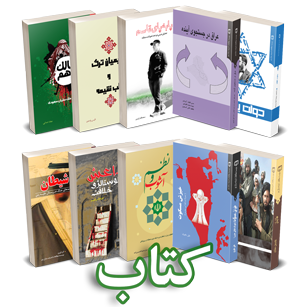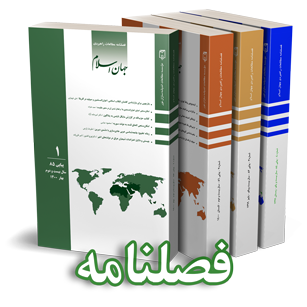کردهای سوریه، وضعیت شناسی و افق سیاسی
فصلنامه مطالعات راهبردي جهان اسلام، سال هجدهم، شماره ۱، پياپي ۶۹، بهار ۱۳۹۶؛ صفحات ۹۵-۱۱۳
چکیده
مناطق کردنشین سوریه یکی از متغیرهای تأثیرگذار در بحران سوریه در سالهای اخیر بود که محل تعارض بسیاری از کنشگران محلی، منطقهای و فرامنطقهای محسوب میشد. در این راستا، احزاب کرد در شمال سوریه و در قلمرو مناطق کردنشین با تقویت توان نظامی و مدل خودگردانی محلی توانستند خود را یک نیروی اثرگذار در حیات سیاسی منطقه نشان دهند. خلق و ایجاد گفتمان ملیگرایانه و تبدیل آن به یک گفتمان ژئوپليتیکی، این واحد جغرافیایی را به یک کنشگر قابل اعتنا برای میدانها و خردهمیدانهای مستقر در بازی بحران سوریه تبدیل کرده است. این تحقیق، ضمن واکاوی و جریانشناسی کردها در فضای بحران سوریه با روشی از تحلیلی ـ توصیفی و با استعانت نظریه هویت و سرزمین در پی نشان دادن کنش هویتخواهانه و ژئوپليتیکی کردهای سوریه در مناطق شمالی این کشور و مبنای نظری، فضاهای تجزیه شده و ناسیونالیسم سرزمینی کردهای سوریه است.
واژگان کلیدی
مناطق کردنشین سوریه، هویت، گفتمان ژئوپليتیکی کردهای سوریه، عوامل منطقهای، حزب کارگران کردستان ترکیه
عنوان مقاله [English]
Syrian Kurds; Situationology, Political horizon
نویسنده [English]
Reza A.Poor
چکیده [English]
Abstract
Syria’s Kurd regions were one of the most influential factors in the Syrian crisis during recent years as they were the conflict scene of many local, regional and transnational actors. In this regard by strengthening of military capability and the local self-government model, Kurd parties in northern Syria and in the territory of the Kurd region could show themselves as an effective force in the region’s political life. Creating of nationalist discourse and converting it to a geopolitical discourse has turned this geographical unit into a striking actor for the fields and micro-fields existing in the Syrian crisis. This article by employing descriptive method and applying land and identity theory tries to analyze the stream of Kurds in Syrian crisis in order to show the identity seeking and geopolitical acts of Syrian Kurds in northern part and also seek to introduce the theoretical basis of fragmented spaces and the territorial nationalism of the Syrian Kurds.
واژگان کلیدی[English]
Keywords
Kurd Regions of Syria, Identity, Geopolitical Discourse of Syrian Kurds, Regional Factors, Kurdistan Workers Party of Turkey
عنوان مقاله [العربية]
دراسة الأوضاع والأفق السياسي لأكراد سوريا
چکیده [العربية]
الملخص
تعتبر المناطق الكردية في سوريا تعتبر احدى المتغيرات السياسية التي كانت لها تاثير في ألازمة السورية في السنوات الأخيرة وكانت موضع التنازع والصراع العالمي بين القوى المحلية والإقليمية والدولية.
في هذا السياق، أظهرت الأحزاب الكردية نفسها في شمال سوريا والمناطق الكردية مع تعزيز القدرة العسکریة ونموذج الحكم الذاتي كقوة فاعلة في الساحة السياسية في المنطقة.
وقد أدى تشكيل الخطاب الوطني وتحويله إلى خطاب سياسي إلى تبديل هذه المنطقة الجغرافية إلى جهة فاعلة في الساحات السياسية والعسكرية والتي لها تاثير بين الجهات الفاعلة في الأزمة السورية.
هذا البحث يسلط الضوء على تحليل الهوية القومية الكردية في الأزمة السورية واستنادا االدور الجيوبوليتيكي للقومية الكردية في شمال سوريا بأسلوب تحليلي وصفي يعتمد على نظرية الهوية و الأرض.
الكلمات المفتاحية
المناطق الكردية في سوريا، الهوية، الخطاب الجيوسياسي للأكراد السوريين، العوامل الإقليمية، حزب العمال الكردستاني في تركيا
منابع فارسي
ـ عبداللهپور، محمدرضا و رحیم قادری (۱۳۹۴)، سوژگی ژئوپليتیک حزب کارگران کردستان ترکیه در بینالنهرین شمالی، فصلنامه پژوهشهای سیاسی جهان اسلام.
ـ عبداللهپور، محمدرضا و محسن دیانت (۱۳۹۵)، دیالکتیک ساختار، کارگزار در منازعات ژئوپليتیکی خاورمیانه، تهران: انتشارات کلک سیمین.
ـ عبداللهپور، محمدرضا (۱۳۹۶)، همهپرسی استقلال کردستان عراق، برندسازی ژئوپليتیک، همشهری دیپلماتیک، تیر و مرداد.
ـ عبداللهپور، محمدرضا و افشین متقی (۱۳۹۴)، دیالکتیک ساختار، کارگزار در منازعات ژئوپليتیکی خاورمیانه با تأکید بر کارگزاری ژئوپليتیکی کردستان عراق، فصلنامه مطالعات سیاسی.
منابع لاتین
-Allsopp, Harriet (2015): The Kurds of Syria. Political Parties and Identity in the Middle East. I.B. Tauris.
-ARA News: http://aranews.net/
-Gunter, Michael M. (2014): Out of Nowhere. The Kurds in Syria in Peace and War. Hurst &
Company.
– Tejel, Jordi (2014): “Toward a Generational Rupture within the Kurdish Movement in Syria?” in: Ofra Bengio (ed.): Kurdish Awakening. Nation Building in a Fragmented Homeland. University of Texas Press.
-Zisser, Eyal (2014): “The Kurds in Syria: Caught between the Struggle for Civil Equality and the Search for National identity” in: Ofra Bengio (ed.): Kurdish Awakening. Nation Building in a Fragmented Homeland. University of Texas Press.
-sofie.Anne( 2017), the kurds of Syria, royal Danish defence college
– Pollock, David, “Syria’s Kurds Unite against Assad, but Not with Opposition”, The Washington Institute for Near East Policy, July 31, 2012.
-Hossino, Omar, Tanır, İlhan (March 2012). “The Decisive Minority: The Role of Syria’s Kurds in the Anti-Assad Revolution,” A Henry Jackson Society Report, 4-5.
– Weiss, Michael, “Syrian Kurd Leader: Revolution Won’t Succeed Without Minorities”, Interview wih Dr. Abdulhakim Bashar, Chairman of the Kurdish National Council, The Atlantic, January 20, 2012.
– Paasi, A. (2011). A border theory: An unattainable dream or a realistic aim for border scholars? In D. Wastl-
– Perspectives from the Austrian-Slovakian border region. In N. Adams, G. Cotella, & R. Nunes (Eds.),
-O Tuathil,Gearoid& Agnew, John(1992), geopolitics & discourse , practical geographical resoning in American policy, political geography ,vol.11.no.2
– Kuus, M., and Agnew, J. (2008) Theorizing the State Geographically: Sovereignty,
-Dijkink, G. 1998. Geopolitical codes and popular representations. GeoJournal
-Dijkink, Gertjan (1998), Geopolitical Codes and Popular Representations, Geojournal, 46, pp. 293-299.
-Vladimir KolossovandJohn O’Loughlin(1998a) Pseudo-states as harbingers of a post-modern geopolitics: The example of the Trans-Dniester Moldovan Republic
– Kolossov, V. and O’Loughlin, J. (1998b) ‘New Borders for New World Orders. Territorialities at the Fin-de-Siecle’, GeoJournal , Minneapolis,MN:University of Minnesota press
-Kolossov, V. and O’Loughlin, J. (1999) ‘Pseudo-States as Harbingers of a New Geopolitics: The Example of the Trans-Dniestr Moldovan Republic’, in D. Newman
– Murphy, A. B. 2002. National claims to territory in the modern state system: geographical Kuus, M., and Agnew, J. (2008) Theorizing the State Geographically: Sovereignty, Hechter, Michael: Containing Nationalism. Oxford University Press, 2000.
– McDowall David, The Kurds, Minority Rights Group 1996, updated seventh edition Published December 1996
– Bruinessen Martin Van, Agha, Shaikh and State: The Social and Political Structures of
-] Gambill Gary C., The Kurdish Reawakening in Syria http://www.meforum.org/meib/ articles/0404_s1.htm retrieved 26 May 2014
– ANF, The development and course of the battle for Kobanê, http://en.firatajans.com/ news/news/the-development-and-course-of-the-battle-for-kobane.htm#.U8EoAaUjFlE.twitter retrieved 15 July 2014
– Tejel Jordi, Syria’s Kurds: History, Politics and Society, Routledge, 2008, p 10
– Sykes Mark, Journeys in North Mesopotamia (Continued), The Geographical Journal, Vol. 30, No. 4 (Oct., 1907), pp. 384-398
– Ayn al-Arab District, http://en.wikipedia.org/wiki/Ayn_al-Arab_District, retrieved October 2013
– Haninke Augin K., The Assyrians and Kurdish Autonomy in Syria, http://aina.org/releases/ 20130819193827.htm, retrieved 5 September 2013.




